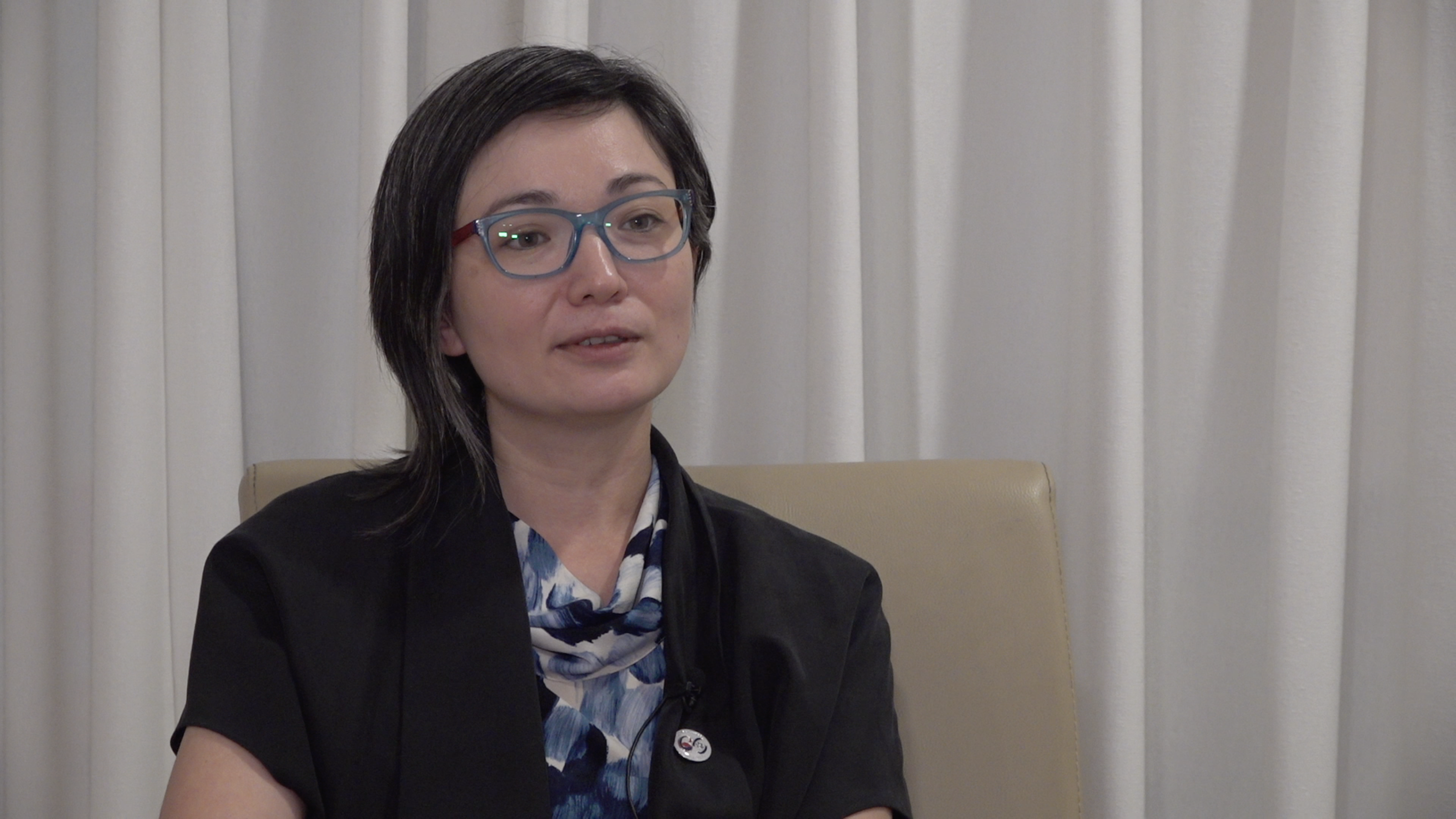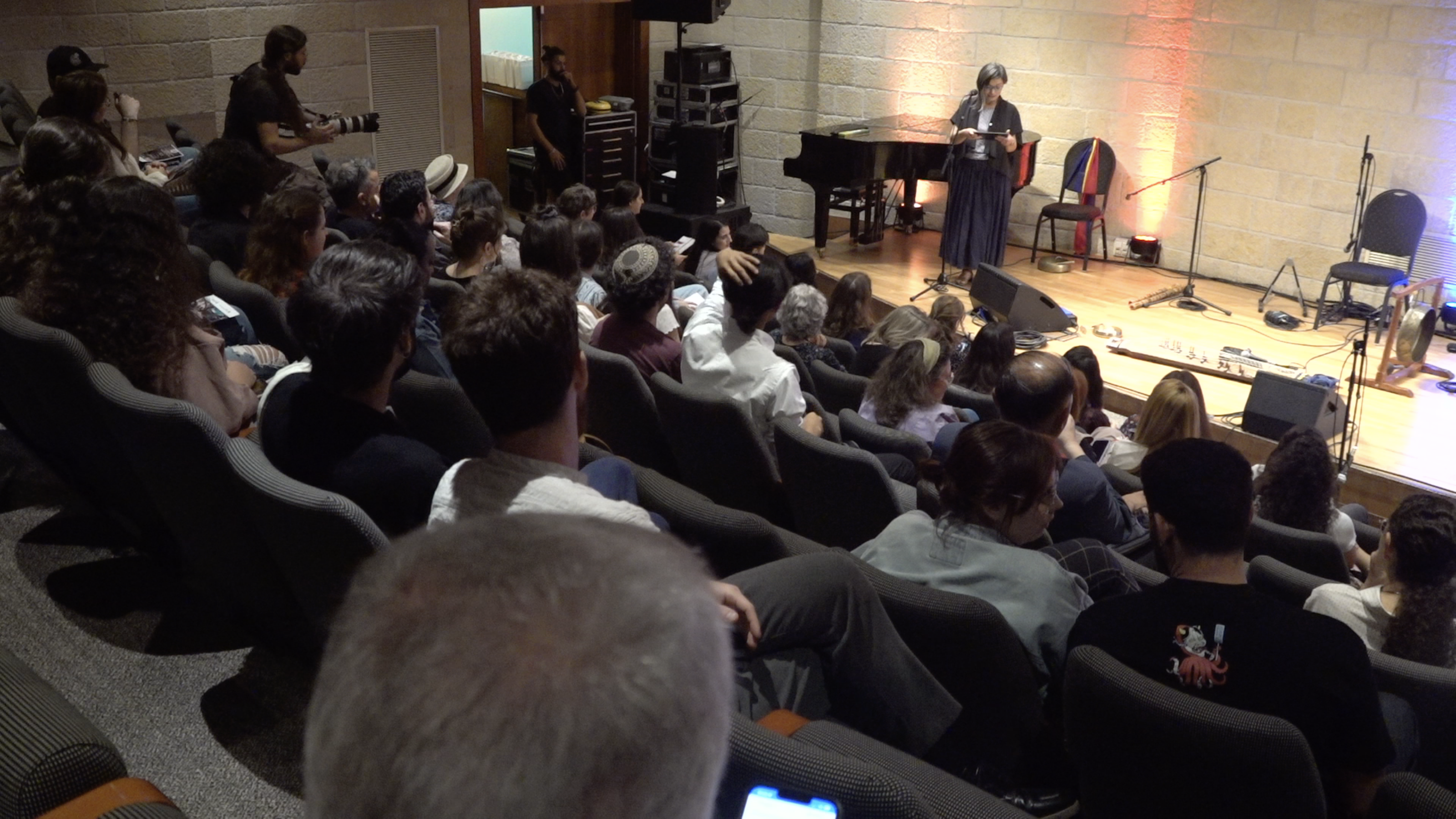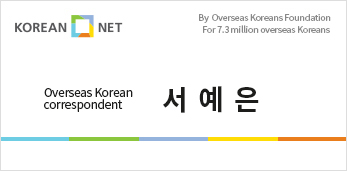Overseas Koreans Platform
- Main page
- Overseas Koreans Platform
- News Room
News Room
- Main page
- Overseas Koreans Platform
- News Room
- Country
- Israel
- Date
- 2022.12.15

Irina Lian, head of Korean studies at Hebrew University Department of Asian Studies
A professor is teaching a lesson on Korea. She might speak Hebrew, but her face feels somewhat familiar. The professor is none other than Irina Lian, head of Korean studies at Hebrew University's Department of Asian Studies. Professor Irina studied the economic growth of Korea and the Korean culture, publishing various theses from her research. We had a chance to listen to the stories of the professor, the one who is giving out lectures on the Korean economy and popular culture.
Q. Please give us an introduction about yourself.
I am a global Korean as a result of the Korean diaspora. My father is Korean, and our family moved to Russia from Joseon at the end of the 19th century. I believe most people back then immigrated due to economic reasons. After immigration, our family lost touch with the Korean language as well as most of Korean traditions. However, we managed to pass down some fragments of Korean culture. I even had my ‘dol’ party, a Korean celebration for babies' first birthday. I think I became a professor because I grabbed a pencil at my dol party. I also grew up eating kimchi and rice, which are the most common food in Korea. Korean sayings were always there in my life, too. The people from the Korean diaspora usually got married to fellow Koreans, but my father married a Jewish woman. My mother is a Russian Jew. That was why I grew up in a mixed environment of Korean and Russian Jewish cultures. I grew up eating Korean food, but I went to a Russian school. People would come up to me and ask, “where did you come from?” I couldn’t answer properly. That was because I had my roots both in Korea and in Israel. But I always knew I would become someone who studied about Korea. I came over to Israel from Russia in 2003, and back then, there was no such thing as Korean Studies in Hebrew University. The school only had Chinese and Japanese, which made me be very sad. The situation led me to major in sociology and anthropology, and I studied about Korea on my own. I couldn’t learn Korean culture inside my family. After completing my doctorate course in Israel and the UK, I’ve been working as the head of Korean studies at Israel’s Hebrew University Department of Asian Studies for the last two years.
Q. Please give us a description about the history of Korean studies in Hebrew University’s Department of Asian Studies.
The Korean studies major was first established in 2013. Back then, we only had four students. It really was a small program. A lot of people asked why we would even learn Korean language, history, and culture. But now, we have over 60 students. The majority of them apply because of Korean popular culture. Korean drama, reality TV, films, and K-pop are all gaining immense popularity among students, giving a rise to their interest in Korean studies.
Q. What are the careers that students can take after graduating from Hebrew University’s Korean studies?
They have various paths. The students in our major take dual degree courses with other social studies. A lot of students take on international relations studies. Some students pursue their careers in diplomacy or economics, while others start their businesses on Korean food or cosmetics. There are also students who work in companies such as Samsung and Hyundai. My wish is to open up more of these venues for my students. Most of the students here want to pursue careers that have relevance with Korea. They might have started to study Korean out of pure personal interest, but a lot of them expand their thoughts and dream of working for the economic benefit of both Korean and Israel.
Q. Tell us about the ‘Korea Day’ event that is held every year in Hebrew University to promote Korean culture.
The Korean Christian students who came to study in Israel in the 1990s created ‘Korea Day’ at the end of the decade. Back then, people knew about China and Japan, but they were completely unaware of Korea. The event was created by Korean students to promote their culture, but now, around 500 Hebrew University students have inherited their legacy to celebrate the event as a Korean culture festival. Korea Day is held once every year, inviting Taekwondo expert teams, traditional Korean music teams, and other groups so that local Israeli people may enjoy the event. The event was is held as an answer to the questions asked by so many people, such as, “why do you like Korean culture?” or “why do you try to learn Korean?” The day is for those people to come along, experience Korean culture for themselves, and answer their own questions.

Professor Irina is introducing a Korean traditional instrument (Korea Day 2022)
Q. When exactly did the Korean Wave start in Israel?
The Korean Wave in Israel started when the TV drama ‘My Lovely Sam Soon’ aired on an Israeli TV drama channel back in 2006. Through the TV show, people started to wonder, “What language is this, and why do Korean mothers act exactly like Israeli mothers?” People from Israel thought their culture had a lot in common with Korea, despite their differences. Through ‘My Lovely Sam Soon,’ more and more Israelis started to take interest in the Korean language. I learned Korean in Hebrew University before the Korean Wave. Back then, I only had three other students who took lessons with me. But now, we have over 30 students in our Korean class. Korean studies began to have more influence on the field of research as well. An enormous number of people from Israel are learning Korean by teaching themselves through dramas or by going to private academies.
Q. What are the things you wish students would learn from the Korean studies classes?
At the first day of every Korean studies class, I ask my students the first word that comes to their minds when they think about Korea. They always reveal both sides of the country. Some students think of war, poverty, and traditional culture, while others point to the most advanced features of Korea such as Samsung, Hyundai, and K-pop. After that, students become a bit confused. They don’t think Korea is a poor country, but they are reluctant to put it in the same place as other wealthy nations. They think the same way for Israel. Israel is a country of conflict, but they think it’s still technologically well-developed. I believe that this is what makes the two countries similar, as the duality of each country creates the same image inside the minds of students. I believe each country has a miraculous story to tell, which could motivate both to learn from each other. My mission in education is to plan that motivation inside the hearts of my students.
Q. Then how could the two countries cooperate?
I believe Korea is like the eastern Israel. I can’t put it in words, but I just feel as if the two countries are connected. A lot of Israelis tell me that they feel more at home in Korea, compared to when they visit Europe. I feel values that are far away and the values that are close together coexist between the two countries. I teach Israeli students about the ‘things that exist inside Koreans but not inside Israelis’ and the ‘things that exist inside Israelis but not inside Koreans.’ By doing so, I study and research with the students on how we may understand and learn from each other. Of course, that excludes just making decisions based on what appears on the outside. I believe cooperation won’t take much effort if we try to find the similarities inside our culture and overcome the differences. This is especially important for businesspeople in the economic sector, as they have to overcome their differences for their success.
